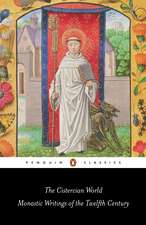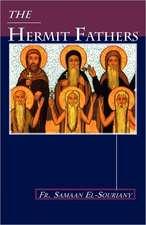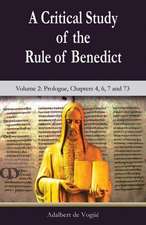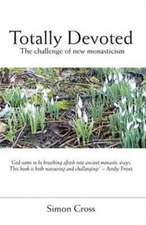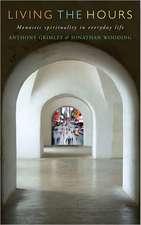Isabelle of France – Capetian Sanctity and Franciscan Identity in the Thirteenth Century
Autor Sean L. Fielden Limba Engleză Hardback – 14 aug 2022
"Beautifully written, based on meticulous and probing analysis of the sources, Sean Field's admirable study of Isabelle of France illuminates not only the woman herself but also the fascinating and complex world in which she lived." —Elizabeth A. R. Brown, The City University of New York
"In this book Sean Field has done a remarkable job in reconstructing the life of Isabelle, the sister of France's saintly king, Louis IX. He has also explored in considerable depth and with great insight the process of making a saint in later medieval France. This is a first-rate study, one written with admirable economy and a judicious sensitivity to the complexities of the sources." —William Chester Jordan, Dayton-Stockton Professor of History, Princeton University
As the only daughter of Blanche of Castile, one of France's most powerful queens, and as the sister of the Capetian saint Louis IX, Isabelle of France (1225-1270) was situated at the nexus of sanctity and power during a significant era of French culture and medieval history. In this ground-breaking examination of Isabelle's career, Sean Field uses a wealth of previously unstudied material to address significant issues in medieval religious history, including the possibilities for women's religious authority, the creation and impact of royal sanctity, and the relationship between men and women within the mendicant orders.
Field reinterprets Isabelle's career as a Capetian princess. Isabelle was remarkable for choosing a life of holy virginity and for founding and co-authoring a rule for the Franciscan abbey of Longchamp. Isabelle did not become a nun there, but remained a powerful lay patron, living in a modest residence on the abbey grounds. Field maintains that Isabelle was a key actor in creating the aura of sanctity that surrounded the French royal family in the thirteenth century, underscoring the link between the growth of Capetian prestige and power and the idea of a divinely ordained, virtuous, and holy royal family. Her contemporary reputation for sanctity emerges from a careful analysis of the Life of Isabelle of France written by the third abbess of Longchamp, Agnes of Harcourt, and from papal bulls, letters, and other contemporary sources that have only recently come to light.
Field also argues that Isabelle had a profound effect on the institutional history of Franciscan women. By remaining outside the official Franciscan and church hierarchies, Isabelle maintained an ambiguous position that allowed her to embrace Franciscan humility while retaining royal influence. Her new order of Sorores minores was eagerly adopted by a number of communities, and her rule for the order eventually spread from France to England, Italy, and Spain. An important study of a medieval woman's agency and power, Isabelle of France explores the life of a remarkable figure in French and Franciscan history.
| Toate formatele și edițiile | Preț | Express |
|---|---|---|
| Paperback (1) | 320.42 lei 6-8 săpt. | |
| MR – University of Notre Dame Press – 14 oct 2006 | 320.42 lei 6-8 săpt. | |
| Hardback (1) | 692.44 lei 6-8 săpt. | |
| Wiley – 14 aug 2022 | 692.44 lei 6-8 săpt. |
Preț: 692.44 lei
Preț vechi: 948.56 lei
-27% Nou
Puncte Express: 1039
Preț estimativ în valută:
132.49€ • 138.35$ • 109.41£
132.49€ • 138.35$ • 109.41£
Carte tipărită la comandă
Livrare economică 15-29 aprilie
Preluare comenzi: 021 569.72.76
Specificații
ISBN-13: 9780268206345
ISBN-10: 0268206341
Pagini: 302
Dimensiuni: 147 x 222 x 23 mm
Greutate: 0.49 kg
Editura: Wiley
ISBN-10: 0268206341
Pagini: 302
Dimensiuni: 147 x 222 x 23 mm
Greutate: 0.49 kg
Editura: Wiley
Notă biografică
Descriere scurtă
Recenzii
“Nearly everything of importance to historians about the thirteenth century is here, refracted in the prism of a single individual's life. . . . As recounted here, Isabelle’s life also illustrates the distinctive elements of women’s piety, with special attention to books and images; the way men saw holy women differently than holy women saw themselves; the conscious campaigning required to create a saint’s cult; the Capetians’ cooperation in taking care of family business; and the dynasty’s strong, royally distinctive piety, with its mendicant flavoring and emphasis on penance. . . Finally, Field’s discussion of the piety of both Blanche of Castille and Isabelle herself is very insightful, both in his recognition of the paradoxes both women embodied and in his deft characterization of Isabelle's piety as 'a studied simplicity.' ” —The Historian, October 2008, 70:3
“This exemplary biography, to a large degree based upon previously unknown or ignored primary sources, offers a close reading of the texts against the broader context. . . . [This book] combines an admirable attention to detail with an excellent analysis of the political and religious context.” —Journal of Ecclesiastical History, 59, 1, January 2008
“The legacy of psycho-history for the interpretation of medieval sources has been long and problematic, and it is good to see here a biography based so firmly in textual criticism, where the reader is made acutely aware on almost every page of how far the evidence can take us securely. The result is a lively picture of Isabelle drawn from her actions, and not from psychological speculation… Isabelle of France has been grounded in modern scholarship in a way which will probably price definitive for some time to come.” —English Historical Review, CXXIII, 500, February 2008
“A wide range of scholars will benefit from this book, certainly including Capetian specialists and Franciscan scholars, but it will also be of considerable interest to those with an interest in the question of women’s agency. . . . Isabelle of France would make a useful assignment for undergraduate classes on women and power or religion.” —Medieval Feminist Forum, 44.2, Winter 2008
“. . .Provides a stimulating overview of Isabelle of France’s achievements. Field’s study thoroughly exploits the available historical evidence. When necessary, he speculates beyond his sources, to create a meaningful psychological profile of the historical actors. I think he has done the world of Franciscan scholarship a great service.” —Religious Studies Review, vol. 37, no. 1, March 2011

